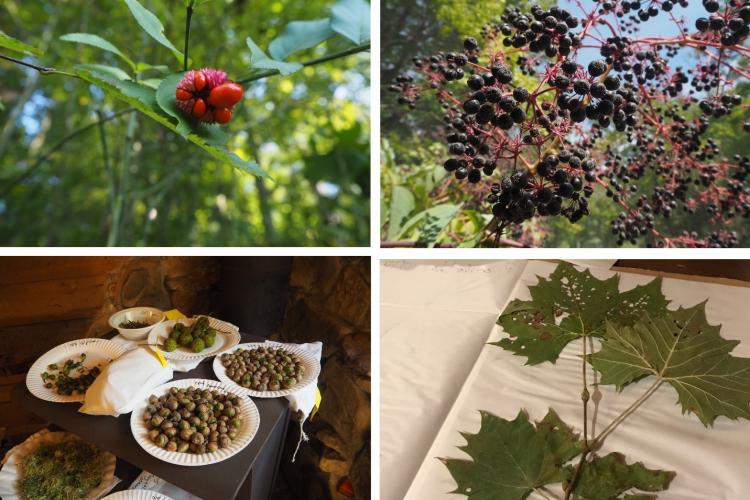Wild-Collecting Plants in Kentucky: Part 1
Wild-Collecting Plants in Kentucky: Part 1

The Walk Across Kentucky (WAKY) native plant collection is a unique and ecologically important plant collection. The WAKY represents plants from all seven physiographic regions of Kentucky, and these plants are wild-collected from across the state. The important goals of The WAKY are to preserve the botanical heritage and genetic diversity of Kentucky’s trees and shrubs. This happens through the sense of place that is re-created when entering a region, as well as through conserving local genetics, adaptations, and varieties that occur when collecting plants from the wild. Throughout the years, we have also focused on collecting and planting native herbaceous perennial plants and mimicking native plant communities of Kentucky. But what does this really mean – what goes into wild-collecting plants?
The quick answer to this question is – a lot. Much of this work is done on the front end, the first step of which is to figure out what plants you want and where they can be collected. Figuring out your taxa list means evaluating the plants you have and don’t have in your collection. It also includes researching your chosen plants to understand their life history traits, which helps plan the timing and location of collections. Locating sites is accomplished through a combination of referencing taxa range maps, historical records, and current records, and collaborating with local experts. Collaboration is key in plant-collecting for accessing resources, pooling knowledge, and dividing labor on collection trips. It also means that seeds and plants are shared and become more geographically widespread, which helps safeguard species!
A very integral step to plant collecting is obtaining the proper permissions. This may be in the form of applying for permits or acquiring written agreements from landowners and can be a time-consuming process. However, once that is complete, you can focus on the nitty gritty trip details like figuring out transportation and lodging, gathering necessary materials, and other logistics. And once all the planning is done, the only thing left to do is to go!
Like much field work, plant collecting is seasonal and unpredictable. When you finally start collecting, there is no guarantee that the seeds you are searching for will be ripe and available for the picking when you get to a site, and the weather is not always cooperative. If the permits you received were restrictive in terms of taxa, it’s possible you may be out of luck due to lack of plants or seeds. It is also incredibly important to ethically collect plants and encourage the regeneration of plants in natural ecological communities. A general rule of thumb is to collect 1 in 20; this could be 1 seed of 20, and/or from 1 plant in a population of 20.
The work is not over after seeds and plants are collected; they must also be processed (pictured). Every plant will have different requirements for how seed should be treated to most effectively mimic natural conditions and provide the greatest success for germination and growth farther down the line. If herbarium specimens were collected in the field, time at the end of the day should be set aside for perfecting the placement of parts to ensure a useful, quality specimen (pictured). This is also a good time to amend collection notes that were taken during the day, such as information about site locality, site descriptions of associated taxa, soil, hydrology, and ecological communities, and GPS coordinates.
After the collection trip, time is set aside for putting together a trip report and recording all the trip data into institutional databases. Seeds are stored or planted, and the tasks of germinating and growing plants for your collection and sharing among institutions begin. The November Curator’s Choice article, Wild-Collecting Plants in Kentucky: Part 2, will focus on The Arboretum’s recent collection trips to the Daniel Boone National Forest, Berea Forest, Floracliff Nature Sanctuary, and Bernheim Research Forest. Stay tuned!
